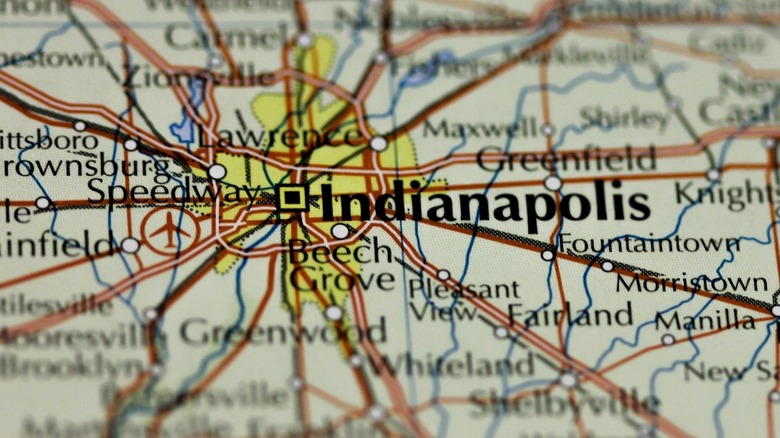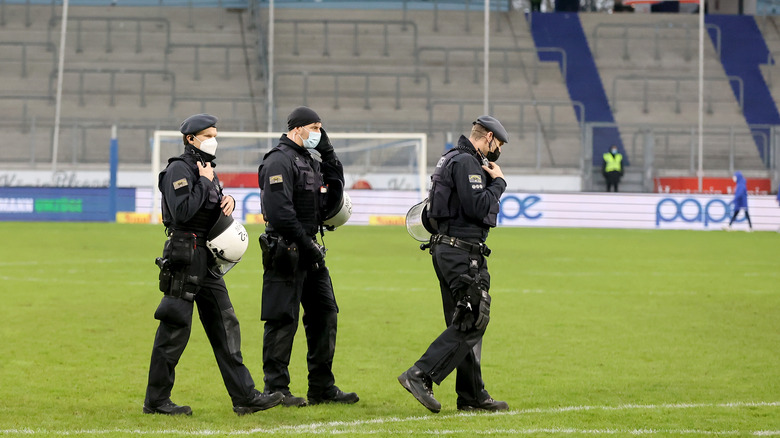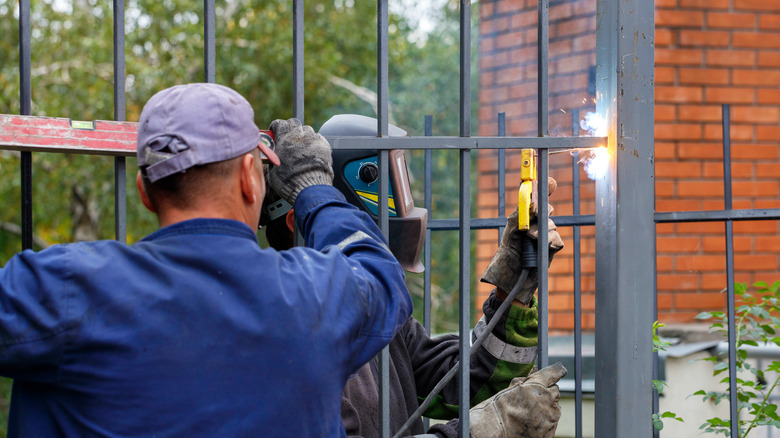Weirdest Laws In Indiana's State History
Behind every law that exists stands one of the four pillars of democracy: discrimination, political showboating, genuine attempt at problem-solving, or a misbehaving character who needed to be stopped at any cost. In Indiana, you have to wonder what kind of misbehavior led to the creation of certain laws — (who, for example, is building "spite fences?") — and for some laws, you have to wonder what kind of circumstances legislators were anticipating (cloning?).
While smaller counties generally retain at least a few unique and particularly antiquated laws, the Indiana statewide Code of Ordinances boasts an array of legal oddities of its own. From bans on cloning to barring police from sports games to erecting fences purely out of "spite," the law contains provisions on a variety of issues you probably didn't know were issues at all. Regardless, legislators worked hard to pass these Indiana laws — for reasons that may be anyone's guess — and contemplating why (for some of them) is definitely an exercise in imagination.
Banned: spitting in someone else's food
This one was important enough to include in Indiana state law. Under a law titled "Malicious Mischief" (IC 35-45-16-2), it is forbidden to insert, dispense, or emit "bodily secretions" into another person's food or upon another person without their knowledge or consent, with prohibited substances including "blood; saliva; sputum; semen; vaginal secretions; human milk; urine; sweat; tears; any other liquid produced by the body; or any aerosol generated form of liquids listed in this subsection ... in a location with the intent that another person will involuntarily touch the body fluid or fecal waste commits malicious mischief, a Class B misdemeanor."
In Indiana, Class B misdemeanors (one example would be public intoxication) are punishable by up to six months in jail and a fine of up to $1,000 (via AV Net Law). Think twice before you spit in someone's soup, or ... cry into it?
Banned: cloning yourself
Under Indiana state law, it's illegal to clone yourself (or anyone else, for that matter), according to Article 34.5 Chapter 1 ("Public Policy Against Human Cloning"). Human reproductive cloning is not specifically banned under United States law (via Knobbe Martens and the National Conference of State Legislatures), but eight states (Virginia, Michigan, Arizona, Arkansas, North Dakota, South Dakota, Oklahoma, and Indiana) forbid cloning in their state ordinances. This law was passed in 2003, nearly a decade after Dolly the Sheep was first cloned at the University of Edinburgh in 1996 (as noted in Live Science).
Between 1997 and 2003, there was a Republican-backed effort to ban human cloning at the federal level, but, according to The Center for Genetics and Society, this effort largely failed. Specific bans on reproductive cloning and therapeutic cloning are now regulated state-by-state, with laws regarding stem cell research and experimentation also regulated separately by jurisdiction.
Banned: drugged milk
Every state seems to have some variety of unique laws pertaining to perhaps the most-regulated consumer beverage other than alcohol: milk. Some states forbid defacing milk cartons, some forbid the consumption of certain dairy products on Sundays, and some, like Indiana, forbid suspicious substances from contaminating milk.
The Indiana state Code of Ordinances has an entire (quite lengthy) section on milk prohibitions, policies, and regulations regarding its sale and preparation, and among these is a law (IC 15-18-1-16: "Drug residue violation screenings; violations") prohibiting milk that fails a drug test. In Indiana, milk must apparently pass a test before being sold to ensure it does not contain "drug residue," upon penalty of a dairy producer losing their license and facing legal penalties. This law may pertain to antibiotics that many dairy producers use on cows at their farms, which may not, it appears, exceed certain quantities in Indiana.
Banned: refusing to let police attend a basketball game
In the Municipal Code of Ordinances of Marion County, Indianapolis, it is explicitly forbidden to ban the police from accessing sporting events. Were there baseball games in the past that refused entry to cops? Why is it mandatory that police be allowed at sports games? These are questions for the legislators of Indianapolis.
Under Chapter 401 ("Offenses Against Governmental Authority") Article 3 ("Public Safety Access to Athletic Contests"), Sec. 401-302 reads: "It shall be unlawful for a private, non-profit, or for profit organization sponsoring an athletic contest in any public venue to deny the Indianapolis metropolitan police department access credentials for any purpose while using public safety employees in any aspect of operational support of a game, contest or event associated with the organization, contest or event." In other words, it sounds like the police can crash your sports game anytime, and there's nothing you can do about it. Interesting.
Banned: erecting a fence just to make someone mad
Under Title 32 ("Property") Article 26 ("Fences") Chapter 10, it is prohibited to erect a fence of excessive height that is either a public nuisance or erected simply to make someone angry. The text of the law (IC 32-26-10: "Spite Fences As A Nuisance") says that others may be entitled to compensation for the "nuisance" of fences erected purely out of spite. A "spite fence" is described as "...[a] structure in the nature of a fence unnecessarily exceeding six (6) feet in height, maliciously: (1) erected; or (2) maintained; for the purpose of annoying the owners or occupants of adjoining property, is considered a nuisance."
It's unclear if one can simply report a fence as "annoying" or if the law rests on the basis of the fence-erector's intent to annoy the owner of the adjoining property, and it is unclear as to what situations this law could apply. Regardless, if there's a law against it, you know "spite fences" have been an issue at some point.





